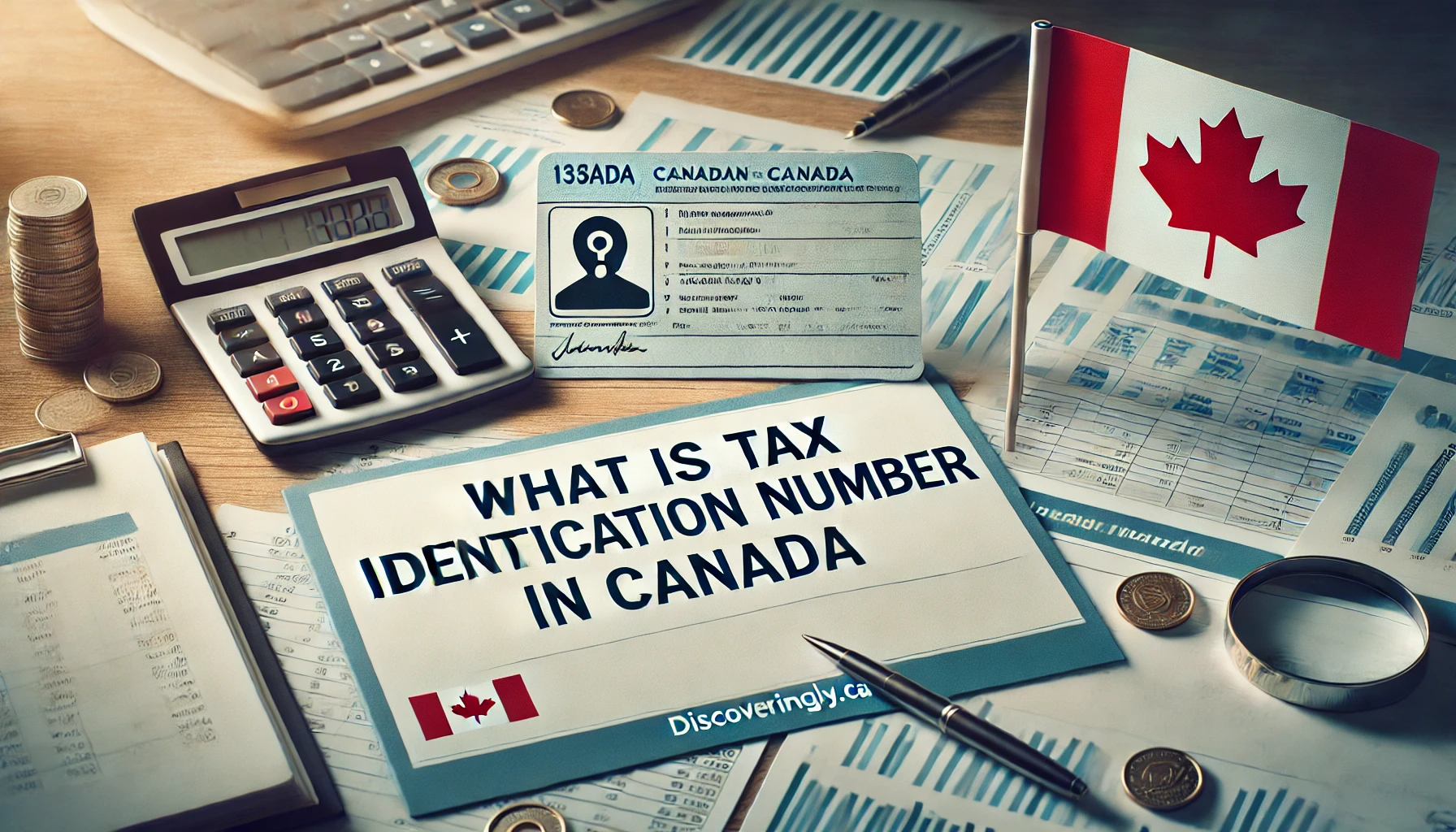What Is a Tax Identification Number in Canada? | Your Guide with Discoveringly.ca
Understanding the Tax Identification Number (TIN) in Canada is crucial for fulfilling tax obligations. In Canada, several types of numbers are used to track and identify individuals or businesses for tax purposes. These numbers are key for employment, opening a business, or filing taxes.
1. Types of Tax Identification Numbers in Canada
The Canada Revenue Agency (CRA) uses various TINs, each serving a specific purpose:
- Social Insurance Number (SIN):
A 9-digit number issued to individuals. It’s mandatory for employment in Canada, filing taxes, or receiving government benefits. The SIN helps the government track your income, tax payments, and eligibility for social programs. If you’re a Canadian citizen, a permanent resident, or a temporary worker, you likely have a SIN. - Business Number (BN):
Businesses operating in Canada receive a Business Number from the CRA. This 9-digit identifier is used for tax purposes and to manage accounts for GST/HST, payroll, and corporate taxes. If you start a business, the BN becomes the key identifier for all interactions with the CRA. - Individual Tax Number (ITN):
Non-residents or people without a SIN who need to file taxes in Canada may apply for an ITN. This number allows individuals to comply with tax regulations even if they don’t have employment eligibility in Canada. - Trust Account Number:
Used for managing estate or trust income. Trusts require this number when filing trust returns with the CRA.
2. When and Why You Need a TIN
For Individuals:
- To report income and file tax returns.
- For employment purposes and receiving benefits.
- When opening registered investment accounts, like an RRSP or TFSA.
For Businesses:
- To register for a Goods and Services Tax (GST) or Harmonized Sales Tax (HST) account.
- For payroll purposes when hiring employees.
- To pay and report corporate income tax or import/export taxes.
Non-Residents:
Even if you don’t live in Canada but earn income here, you might need an ITN to file taxes on rental properties, investments, or other Canadian earnings.
3. How to Apply for a TIN in Canada
Social Insurance Number (SIN):
- Apply online through Service Canada or in person at a Service Canada Centre.
- You’ll need original documentation, such as a birth certificate, work permit, or permanent resident card.
Business Number (BN):
- Register online with the CRA or through a provincial business registry.
- Upon registration, you’ll receive a unique BN used across multiple tax accounts.
Individual Tax Number (ITN):
- Complete Form T1261 and submit it along with certified identification to the CRA.
- Useful for students, non-residents, or individuals without employment eligibility in Canada.
4. Security and Privacy of Your TIN
Your TIN, whether a SIN or BN, is sensitive information. Always safeguard it to prevent identity theft. Only share your SIN or ITN with authorized entities, such as employers, financial institutions, or government bodies.
How Discoveringly.ca Can Help
Discoveringly.ca is your premier source for finding local Canadian services that assist with tax registration and financial management. Whether you’re setting up a new business, seeking an accountant, or learning about tax requirements, Discoveringly connects you with the right professionals in your area.
FAQs About Tax Identification Numbers in Canada
1. Can I use my SIN for business purposes?
No, businesses must use a Business Number (BN) for tax-related matters, while individuals use a SIN for employment and personal taxes.
2. Is there a fee for applying for a SIN or ITN?
Applying for a SIN or ITN is free, but you may incur costs for replacing a lost or stolen SIN card.
3. How long does it take to get a SIN or ITN?
A SIN can be issued immediately if you apply in person. An ITN takes several weeks as it requires processing by the CRA.
4. What should I do if my TIN is compromised?
Contact Service Canada or the CRA immediately to report the situation and take steps to protect your identity.
5. Can I file taxes without a TIN?
No, a TIN is mandatory for filing taxes or receiving government benefits in Canada.
Conclusion
Tax Identification Numbers are an essential part of the Canadian tax system. Whether you’re an individual, a new business owner, or a non-resident earning income in Canada, understanding and applying for the right TIN is crucial. Use Discoveringly.ca to find local tax professionals and resources near you, making your tax journey smoother and stress-free.






